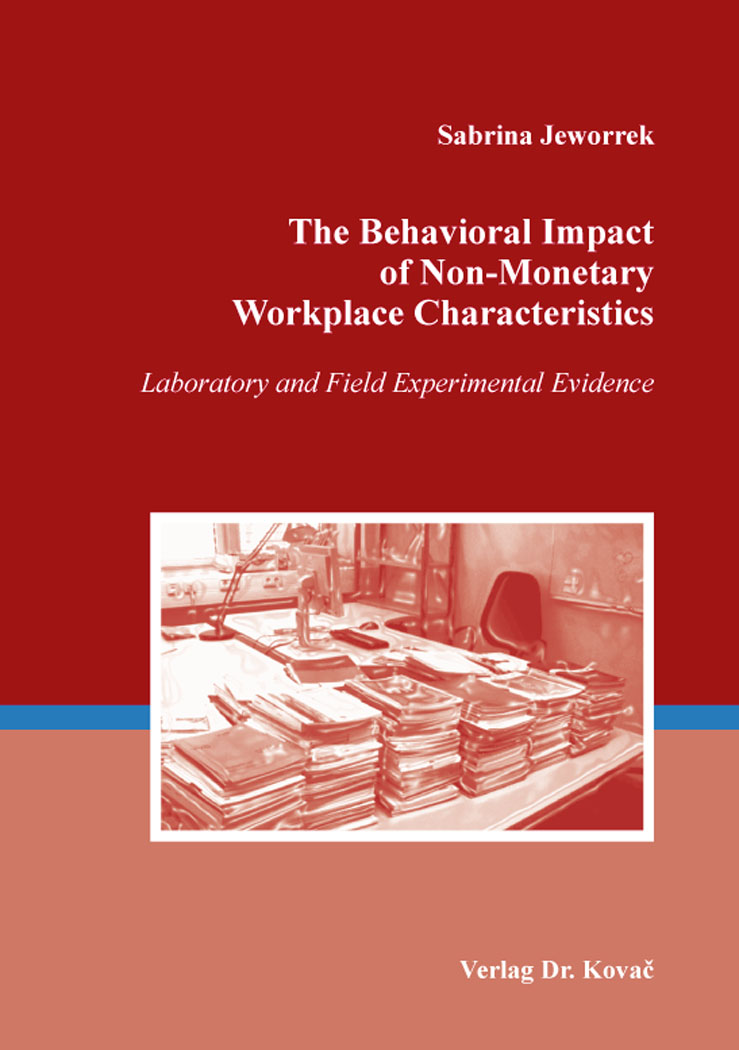
The Behavioral Impact of Non-Monetary Workplace Characteristics
This book investigates the impact of non-monetary workplace characteristics ― i.e. employee voice, task characteristics, and the provision of information ― on workers’ individual decision making and workplace performance. Given the neoclassical assumption of purely self-interested and completely rational utility maximizing individuals, workplace characteristics should be of little interest as long as they are not directly related to payment issues, so that a worker’s utility maximizing effort choice given a fixed wage level remains unaffected. Recent empirical findings, however, suggest that the use of non-monetary incentives might even be the better option to increase work performance. Three out of the four experimental studies covered by this book extend the previous research by providing more reliable insights into field behavior than conventional laboratory experiments. Given e.g. the right to self-determine one’s wage, almost all participants in the laboratory opt for the highest possible wage. Within the context of an inventory taking with 140 assistants, we conducted a natural field experiment and show that most workers ask for rather moderate wages with women being particularly conservative in their demands. Notwithstanding, wage delegation causes workers’ performance to rise and, hence, stresses the relevance of voice at the workplace. Furthermore, we provide evidence that workers also care for the content and the meaningfulness of their tasks. Uselessly exerted effort, for instance, reduces work performance as regards a completely unrelated task in the future. Taken together, the field experimental evidence presented in this book indicates that if employees find a workplace which matches their preferences, it is quite likely to be a beneficial situation not only for the employee but also for the employer. Overall good working conditions can even help workers overlook unequal treatments within the workforce, at least in the short-run and as long as there is a plausible reason for it. An additional laboratory experiment, however, suggests that additional information, e.g. about potential coworkers, might be necessary to make reasonable decisions in accordance with individual preferences.





